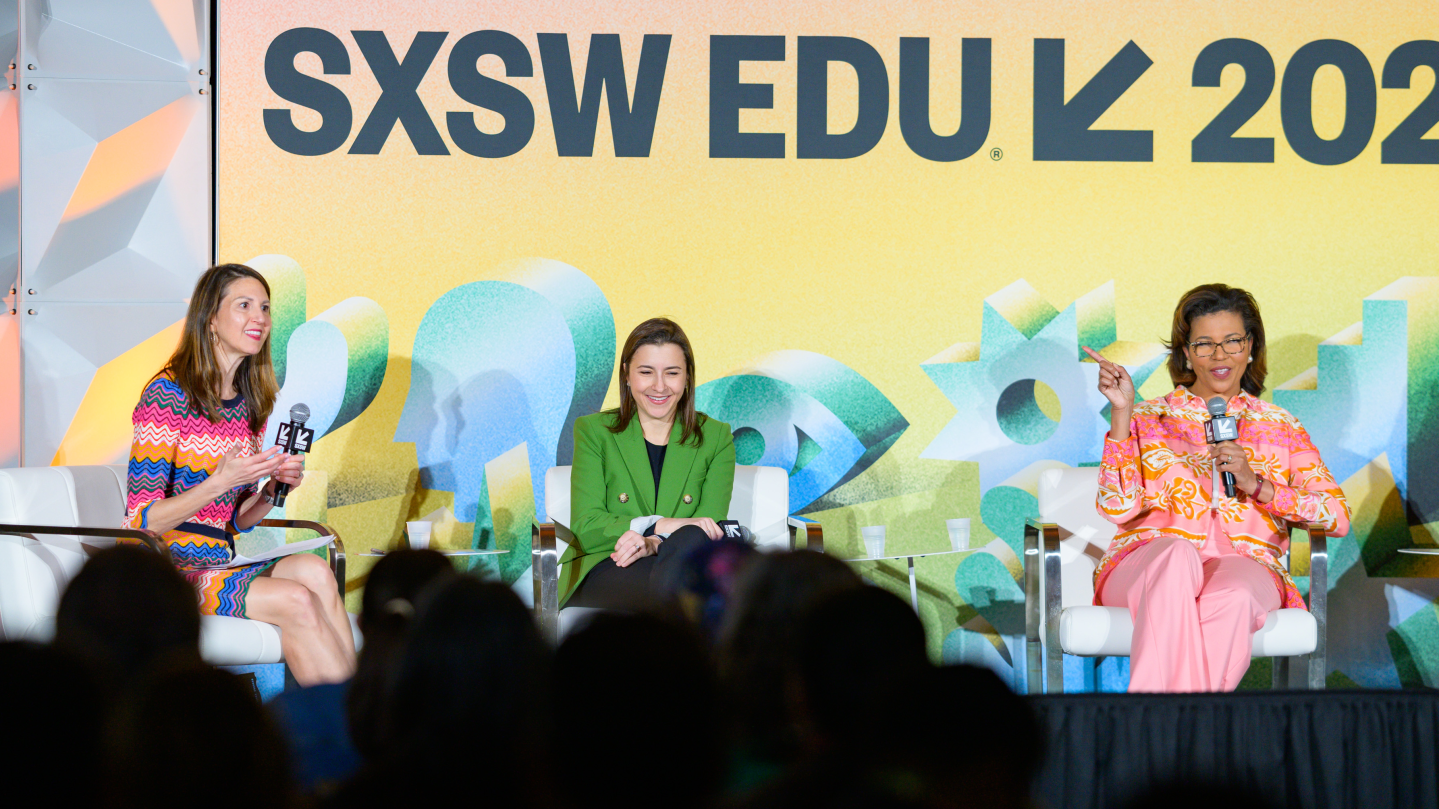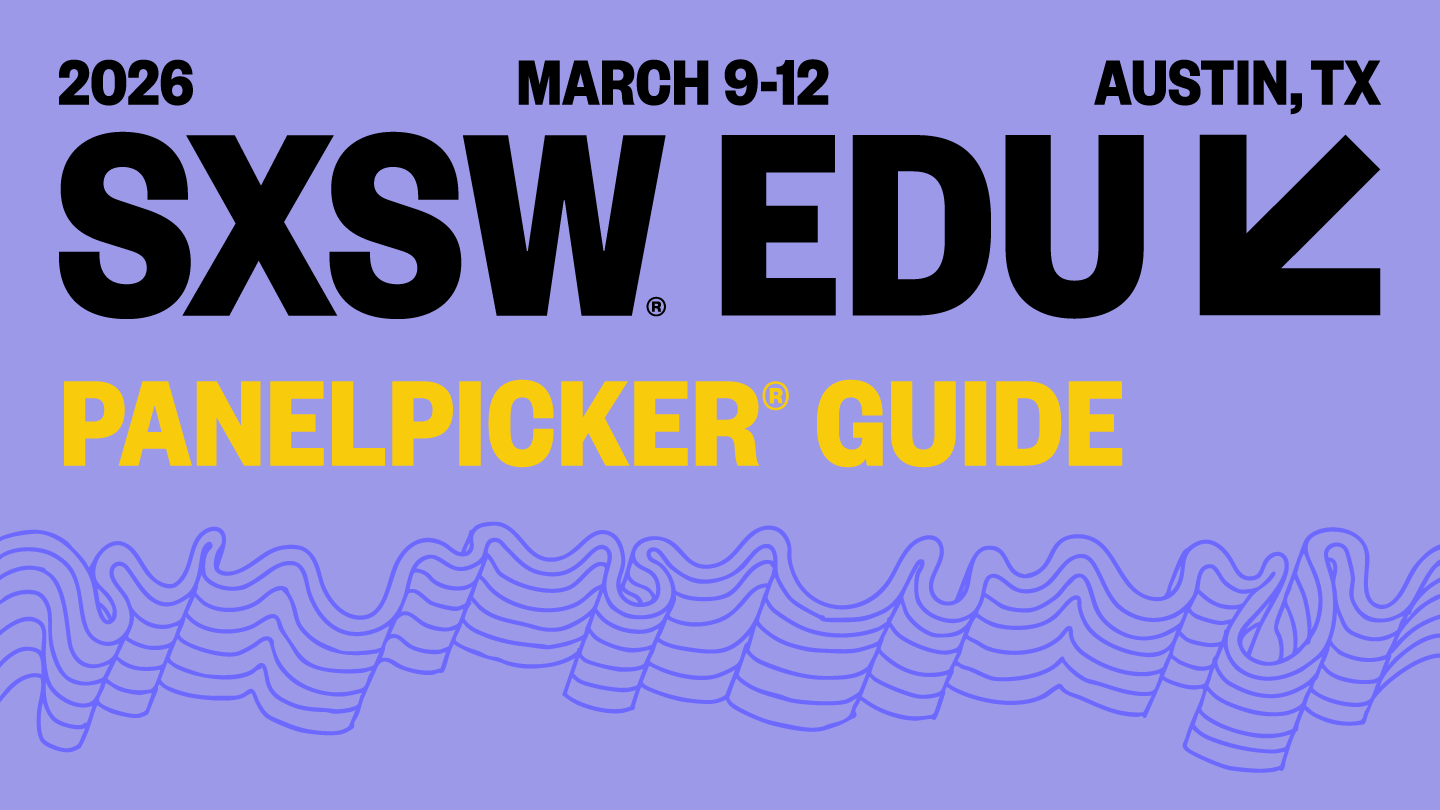Selecting the right track and format for your session idea is essential as it will determine the identity of your session from the number of speakers to the level of audience interaction.
Conversation
(45 min, 2 speakers)
An in-depth interview, fireside chat, or debate that spotlights thought leadership and insights on a particular topic or area of expertise, followed by audience Q&A
- This format highlights rich and insightful conversation that delves into topics across the educational landscape
- Don’t forget to leave time for the audience to join in on the conversation through Q&A
Meet Up
(60 min, 1-2 speakers)
A speaker-facilitated networking event that encourages communities to connect around similar topics, passions, roles, or interests. Please note this is NOT a presentation-based session format.
- The primary focus is to foster connections and community engagement
- These sessions are community or topic-focused networking events that can take a variety of forms, such as a facilitated networking activity, game, or discussion
Panel
(45 min, 3-4 speakers)
A dynamic and diverse discussion offering multiple viewpoints on a particular topic, followed by audience Q&A
- Since this format allows for multiple presenters to contribute to the conversation, choose your speaker lineup carefully to consider what voices and perspectives can contribute to a rich conversation on the topic
- If you submit a proposal for a panel, be sure to pay close attention to the diversity guidelines
Performance
(90 min, 1+ speakers)
A musical, theatrical, storytelling, dance, poetry, or other performance that includes a workshop or extended Q&A to reflect on the value of the performing arts as a vehicle for deeper learning and offer takeaways for the audience
- Additional performers can join the session if accepted
- Performances should be combined with a workshop-style experience, offering a deeper understanding of the concepts fueling the performance as a vehicle for deeper learning and takeaways
Podcast
(45 min, 2-4 speakers)
For media organizations and existing podcasts, a conversation on topics across the education landscape, recorded in front of a live audience to be used as a future episode
- Audience Q&A can be included to enhance engagement
- These recordings will be shared with organizers afterwards to be released as future podcast episodes
Solo
(20 min, 1 speaker)
A short solo presentation highlighting new and emerging ideas, followed by audience Q&A
- Solo sessions allow speakers to delve into specific topics quickly, offering attendees a focused and intentional presentation
- Work to isolate the primary aspect of your topic and get into the specifics
Workshop
(90 min, 1-3 speakers)
An in-depth, instructional program with hands-on learning activities and specific takeaways
- Attendees highly value workshops due to the comprehensive information and interactive exercises they offer
- The longer duration allows speakers to delve deeply into the subject matter and facilitate active participation from all participants
Accessibility Solutions
Exploring initiatives and programs that focus on special education, learning differences and neurodiversity, and disabilities across the learning lifecycle including adaptive instructional strategies, assistive technology, universal design, and more
Arts & Culture
Exploring arts-based pedagogies and cultural and creative practices including the performing and visual arts, arts integration, media creation, gaming, and media and entertainment initiatives as well as approaches to storytelling, branding, and world-building for teaching and learning
Community Initiatives
Programs and projects focused on empowering and connecting communities in and out of the classroom by highlighting partnerships and work organized by community spaces and groups including libraries, museums, makerspaces, community centers, after-school and summer programs, informal learning programs, outdoor education initiatives, and more
Equity & Belonging
Addressing work championing equity, justice, belonging, diversity, and inclusion in education and beyond, including social and economic disparities, culturally responsive teaching, anti-racism practice, gender and LGBTQIA+ issues, restorative justice, and more to ensure equitable opportunities and outcomes for all
Future of Tech
Exploring development and implementation of educational technology including virtual tools, generative artificial intelligence, and data interoperability, with a focus on issues surrounding equitable access to and ethical use of technology and future-forward solutions for tech integration
Global Initiatives
Programs and initiatives exploring the importance of global collaboration in education and beyond including international instructional approaches and business ventures, language learning and ESL/ELL instruction, program implementation across borders, global partnerships, issues impacting immigrant learners and international students, cross-cultural initiatives, and more
Health & Wellbeing
Furthering social emotional learning, whole-child education, and human flourishing including initiatives addressing mental and physical wellness, trauma-informed practices, digital wellbeing, sports and physical education, and health education with a focus on mental health initiatives and comprehensive wellbeing for educators, students, and families
Leadership for Tomorrow
Groundbreaking insights spotlighting work in leadership development and institutional transformation with topics including organizational management, issues impacting administration, executive leadership, systemic implementation, cultivation of youth leadership, pathway creation across the education sector, and educator development and support
Policy & Advocacy
Addressing education policy issues and legislative changes across local, regional, national, and international governance including funding, curriculum and assessment standards, student data use and privacy, school safety, and digital policies, as well as economic development, civic engagement and activism, and public-private partnerships
Startups & Investment
Content focused on the business of education with a focus on entrepreneurship and startups, with topics including investment and funding, marketing and branding strategies, corporate initiatives and partnerships, market trends and analysis, and business scalability and adaptability
Teaching & Learning
Content focused on instruction and pedagogy across the entire learning lifecycle with a focus on solution-oriented strategies, innovative teaching, learner agency, and child development, with topics including instructional best practices for all educational levels and evolving curricula, teacher and faculty support, the science of learning, creative pedagogies, and communities of practice
Work Reimagined
Programs and new approaches to professional development, upskilling, microcredentialing, corporate learning, and talent development, including workforce revitalization, training, and career transitions, as well as initiatives for adult learners, non-degree pathways, and how the future of work will impact new generations of students




 All ideas received during the PanelPicker entry period will be posted online for public voting. It’s as easy as “review, comment, and vote” to help shape SXSW EDU programming.
All ideas received during the PanelPicker entry period will be posted online for public voting. It’s as easy as “review, comment, and vote” to help shape SXSW EDU programming.